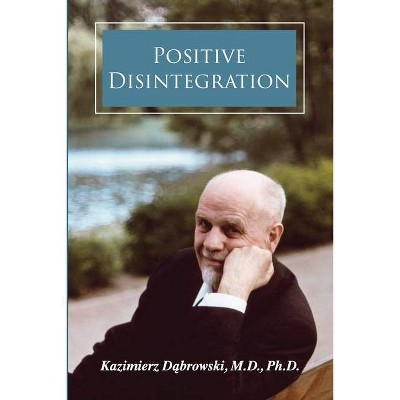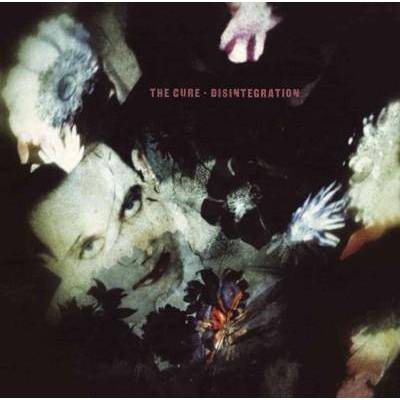Positive Disintegration - by Kazimierz Dabrowski (Paperback)

Similar Products
Products of same category from the store
AllProduct info
<p/><br></br><p><b> About the Book </b></p></br></br>Kazimierz Dabrowski refers to his view of personality development as the theory of positive disintegration. Dabrowski feels that no growth takes place without previous disintegration. He regards symptoms of anxiety, psychoneurosis, and even some symptoms of psychosis as the signs of the disintegration stage, and therefore not always pathological.<p/><br></br><p><b> Book Synopsis </b></p></br></br><p>Kazimierz Dabrowski refers to his view of personality development as the theory of positive disintegration. He defines disintegration as disharmony within the individual and in his adaptation to the external environment. Anxiety, psychoneurosis, and psychosis are symptoms of disintegration. In general, disintegration refers to involution, psychopathology, and retrogression to a lower level of psychic functioning. Integration is the opposite: evolution, psychic health, and adequate adaptation, both within the self and to the environment. Dabrowski postulates a developmental instinct--that is, a tendency of man to evolve from lower to higher levels of personality. He regards personality as primarily developing through dissatisfaction with, and fragmentation of, the existing psychic structure--a period of disintegration--and finally a secondary integration at a higher level. Dabrowski feels that no growth takes place without previous disintegration. He regards symptoms of anxiety, psychoneurosis, and even some symptoms of psychosis as the signs of the disintegration stage of this evolution, and therefore not always pathological.</p><p/><br></br><p><b> Review Quotes </b></p></br></br><br><p>"Dabrowski's theory is not only interesting but even exciting in its breadth and depth of its implications. The ubiquity of psychological symptoms has always confounded a simple descriptive psychopathological approach to mental illness. Dabrowski's theory gives these symptoms a role in normal personality development that is consistent with their broad distribution as shown by epidemiological studies and as felt by those aware of the problems in themselves and in those around them."<br /> Jason Aronson, Harvard Medical School</p><br>
Price History
Price Archive shows prices from various stores, lets you see history and find the cheapest. There is no actual sale on the website. For all support, inquiry and suggestion messagescommunication@pricearchive.us



















